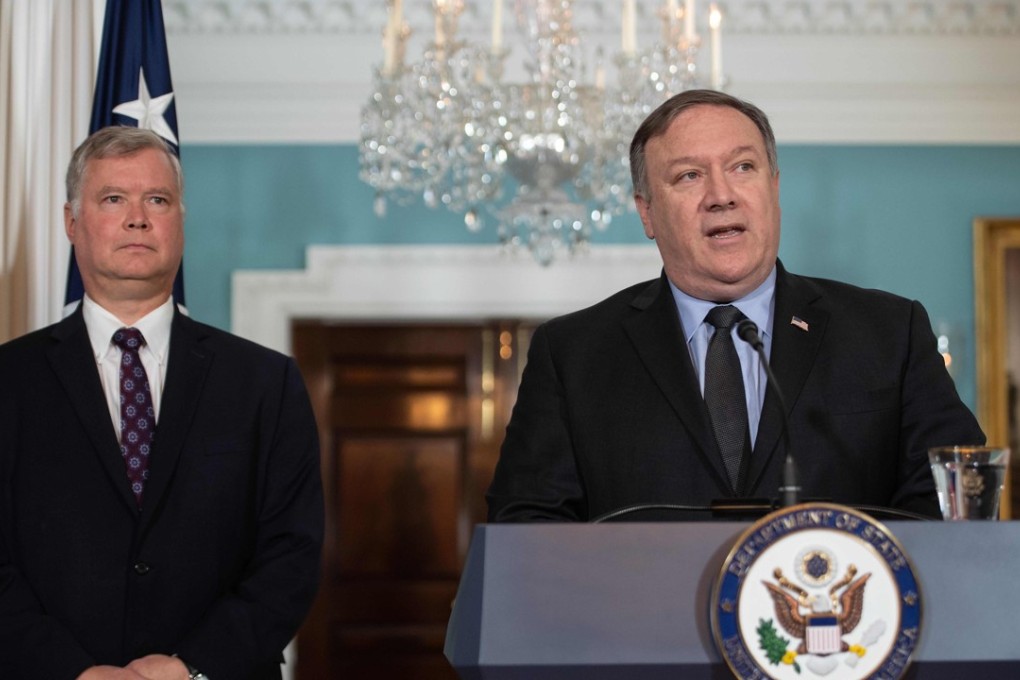As Mike Pompeo heads back to North Korea, is China ‘eroding US alliances’ in Asia?
The US secretary of state appointed Stephen Biegun his special envoy for North Korea and said they would travel to the nuclear-armed country next week

US Secretary of State Mike Pompeo announced on Thursday that he would return to North Korea next week, amid concern over the amount of influence that China and Russia are trying to exert over Korean denuclearisation efforts.
One former US government official even suggested to the South China Morning Post that US President Donald Trump’s decision to indefinitely suspend military exercises around the troubled peninsula in June was due to the influence of China and Russia.
And experts warn that with Chinese President Xi Jinping reportedly planning to make his first visit to Pyongyang on September 9 for the 70th anniversary of North Korea’s founding, Beijing could use the denuclearisation talks to incrementally erode Washington’s alliances in Asia.
Pompeo said on Thursday that he would make the trip with new special envoy Stephen Biegun, a former senior executive at Ford Motor Co, who will head up efforts to denuclearise North Korea.
But his visit comes at a key moment for China.
“China sees itself as the logical big power in the region,” said Jung Pak, a former deputy national intelligence officer at the National Intelligence Council who has led US intelligence agencies’ strategic analysis on Korean issues.
But, Pak said, Beijing sees the US’s deployment of the Terminal High Altitude Area Defence system – or THAAD – and its potential trilateral security cooperation with South Korea and Japan, as an attempt to contain China. That means it’s in the country’s interest to erode America’s position in the region.